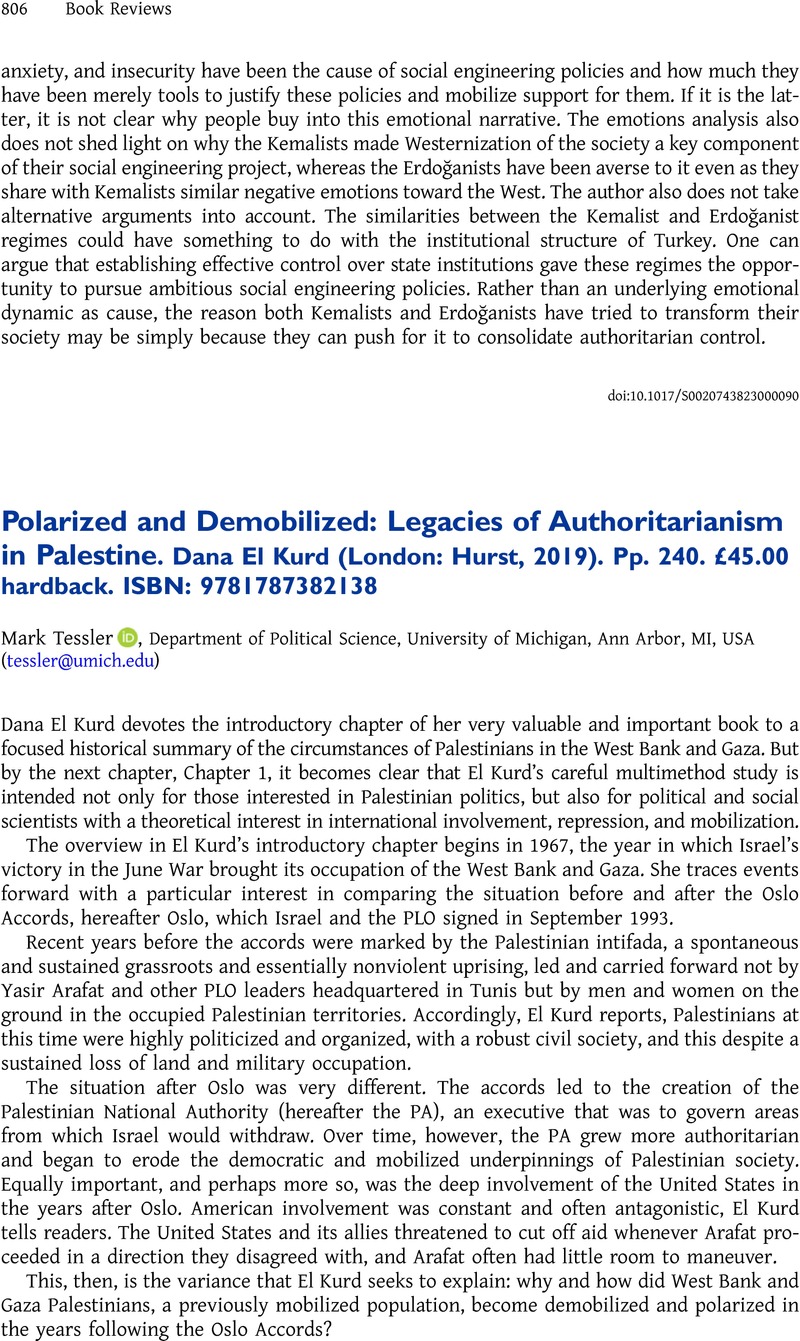No CrossRef data available.
Article contents
Polarized and Demobilized: Legacies of Authoritarianism in Palestine. Dana El Kurd (London: Hurst, 2019). Pp. 240. £45.00 hardback. ISBN: 9781787382138
Review products
Polarized and Demobilized: Legacies of Authoritarianism in Palestine. Dana El Kurd (London: Hurst, 2019). Pp. 240. £45.00 hardback. ISBN: 9781787382138
Published online by Cambridge University Press: 14 February 2023
Abstract
An abstract is not available for this content so a preview has been provided. Please use the Get access link above for information on how to access this content.

- Type
- Book Review
- Information
- Copyright
- Copyright © The Author(s), 2023. Published by Cambridge University Press



